RUTANYA ALDA – Interview
Becoming an actress didn’t come easy for Rutanya Alda. She didn’t come from the suburbs of middle America, and head to Hollywood to live out her big screen dreams. Instead she came from a very harsh and brutal enviornment, surrounded by war and despair. However, tough times and war would not last, and later, would come success and achievement.
Born Rutanya Skrastina, on October 13, 1942, in Riga Latvia, Rutanya lived with her father Janis, a poet, and her mother Vera, a business woman. Following World War II, Rutanya and her family were refugees, displaced, and at various camps. It wasn’t until 1951, she and her family were able to finally enter the USA. Once she entered the state of New York, by way of Ellis Island, she began a new life, free from the burdens of a war torn Europe. Circumstances would be that the family was en route to Arizona, and Rutanya would reside there, later studying Economics at the Northern University of Arizona. However, it was the love of film that changed her path. She studied at the famous Lee Strasberg Theater and Film Institute, as well as studying with many others, but it was legendary director Brian De Palma, who gave Rutanya her first break in the business, in the film, GREETINGS, which starred a very young Robert De Niro.
Rutanya would go on to also double for many actresses such as Barbra Streisand, Mia Farrow, and many others, and she also won a Clio Award for Best Actress, in a John Hancock commercial. It was 1978 when Rutanya was given the opportunity at her first major role, in the Vietnam war film, THE DEER HUNTER. Her success in the film led Rutanya to many other roles, and her name began to command attention in Hollywood. It was in 1981, that Rutanya would play her biggest, and most renowned role to date, “Carol Ann”, in the film, MOMMIE DEAREST, which was a biography film, based on actress Joan Crawford’s life, with the lead role played by actress Faye Dunaway. This film, and working with Faye, would later lead Rutanya to write her autobiography/diary of her times working on that film, working with Faye, her life, and times in Hollywood.
Rutanya has been in the industry for 50 years now, and has had more than 100 roles. She was married to actor Richard Bright for 30 years, before his passing in 2006. She has one son, Jeremy Bright who helped edit her new book, THE MOMMIE DEAREST DIARY – Carol Ann Tells All. Her dream of becoming an actress never wavered. From that 5 year old child in a refugee camp, she has become the actress she set out to be. Rutanya has done it all, seen it all, and now, is TELLING it all, in her new book, THE MOMMIE DEAREST DIARY – Carol Ann Tells All.
I would like to thank Rutanya Alda, for her time, and participation with this interview. She is truly a gracious, and beautiful lady.
TN: Aside from being considered a well respected actress in the film industry, you’ve had an amazing life in general. Would you share with us some of what stands out most from your youth, going through World War II?
RA: The aftermath of WWII, left millions homeless, and in despair. Whole towns were bombed out, and there was little, or no food. People lived in the rubble of burned out buildings. People were desperate, and some of them committed suicide. It truly was a time of despair.
TN: What do you remember most about your stay, at what you have referred to as, the displaced persons camps, during that time?
RA: I remember despair. The feeling of such gratitude to get black bread and lard to eat, and my grandmother going into the forests looking for mushrooms, so we could eat. The displaced persons camps got better when the American Army established a center where people could get basic weekly rations, such as bread. God bless the American Army, and their refugee plan.
TN: Would you say strength, that you saw through troubling times of survival, is the same strength that later helped you in your life, and your career as an actress?
RA: Yes, I saw what courage people had to live. My grandmother especially, would travel for days by foot into the countryside to barter whatever jewelry she had for food, and she would carry it back on her back.
TN: Luckily, you made it to America. What was your initial experience?
RA: We came in through Ellis Island, but we were sent to Flagstaff, Arizona. At that time you were vetted, it took years, and you could not come into America unless you were sponsored by a group, and had work lined up, so you would not be a burden on the community. People that came from the camps all had different countries to go to, but with jobs.
TN: What made you decide not to proceed in a career in Economics, and become an actress instead?
RA: I never wanted a career in Economics – it was a way of pleasing my mother, who wanted me to be a doctor or a lawyer. Economics was considered a pre-law degree at the time. I wanted to be an actress, from the age of 5, when I saw my first play and movie, in the displaced person camps. I never wavered from this passion.
TN: Your son Jeremy Bright (who edited your book), was your first child. What did you enjoy most about motherhood, and what lessons did you learn from your own mother that helped you raise him?
RA: Becoming a mother was the most important, rewarding, and hardest work I have ever done. Nothing compares to bringing a life into this world, and doing your best for this new soul. I was trying not to do to him, what my mother did to me, with her cruelty and abuse, so I developed the lesson of patience, and my heart expanded with love.
TN: You studied acting with Lee Strasberg, what if any, lessons or advice impacted you the most during that time?
RA: Lee Strasberg was not my best teacher of the art and craft. My best teachers were Barbara Loden, and Paul Mann. They helped me understand the craft more than anyone else, and I still think of them, and am very grateful for their gifts to me.
TN: You have been in many television shows, and mini-series. What was your first television role?
RA: My first television show, speaking part, was on NYPD, and it happened by accident. I played a waitress where the robber comes in to rob people. I had been paying attention to the acting, and the director turned to me and said he needed me to react to the robber. My training enabled me to respond, and make up some dialogue that was appropriate to what was happening. Jack Warden later told me I did a great job.
TN: Even though you had roles as a stand-in, your first major role was in the film, The Deer Hunter. The film was controversial due to its subject matter about the Vietnam war. Were you nervous taking on a role in such a film?
RA: Actually my first major role was not in The Deer Hunter, but in the early Brian de Palma film… Greetings… which won the Silver Bear, in the Berlin film festival, I got great reviews from Pauline Kael and others. That was followed by de Palma’s… Hi Mom…which Richard Shickel, of Life Magazine, did a whole article on my 20 minute scene of… Be Black Baby… as did other leading critics. I wasn’t nervous about taking on a role in The Deer Hunter, as I felt I was prepared as an actress to do so, and also I think it was enough time after the Vietnam war, where it (the film), gave a great perspective. When I was in Cleveland opening the film, a lot of vets were crying, and thanking me that this film had been made.
TN: You’ve worked with actor Burt Young in Rocky 2, and The Amityville Horror 2: The Possession. What was it like working with him both times, and what did you enjoy most about him?
RA: Burt is a fun person, with a sense of humor, and great to work with. I enjoyed working with him especially on Amityville 2, we were on it for about 2 months.
TN: In 1993, you starred in the film The Dark Half, based on the Stephen King novel, directed by horror legend, George A. Romero. What was it like working on a film with two horror legends, and are you a Stephen King fan yourself?
RA: I admire Stephen King very much, I think he’s great. George Romero is one of the nicest people I have ever met, a gentleman, and a great director. I would welcome working with him again.
TN: Out of all the films you’ve worked on, what had the harshest filming conditions?
RA: Probably The Deer Hunter, as we were in the middle of one of the worst heat waves in Cleveland’s history, working in Lemko Hall, which had no AC. My wedding dress never did get dry…and then for the funeral, we had on all these winter clothes in the heat. But in spite of all that, it was one of my happiest times.
TN: Your most famous, and considered the most impressive role of your career, was as, “Carol Ann”, in the film, Mommie Dearest. The film is about the life of actress Joan Crawford. Your new, “tell all biography/diary, goes into great detail about what it was like every day on set. If there was one single moment that stands out the most, working in that film, what would it be?
RA: The moment that stands out in Mommie Dearest, happened early when Charlie Schramm, was doing my life mask, and I couldn’t breathe the last two minutes. I thought I would die, as he wouldn’t take it off, or would have to start all over again, and he didn’t want to do that. When I took that gulp of breath, it was like a drowning person getting air.
TN: After five decades in the film industry, what inspired you to write your story now?
RA: Because the film Mommie Dearest, has become the biggest cult classic of our time, people were interested in more details, and the experience. I had journaled it, but not as a book, but for myself…and had no way of knowing the interest of this film 30 years later. So I really actually responded to the interest of the LGBT (Lesbian,Gay,Bisexual,Transgender) community.
TN: Tell us a little about the work, and length of time it took you to write your biography from start to finish?
RA: I worked on the, Mommie Dearest Diary: Carol Ann Tells All, for a year and a half…and decided through the good advice of my son, as he had been an editor of the paper at Vassar for 4 years, to add, “who was I, before I became Carol Ann”, so people would get to know me, the pain of my childhood, the journey to New York to become an actress, my early work and experiences with people like Sam Peckinpah, Brian de Palma, Robert Altman, etc., and what it was like working with them, and others in the 70′s and 80′s. It was a different era in film, I think like no other, and I journaled that experience.
TN: Who did the book’s cover design, back photo, and why did you choose them?
RA: My friend from the Academy of Motion Pictures, a famous animator, Leon Joosen, was the person who did my cover. He came up with the idea when we were eating at a diner after the Easter parade. He is such a creative great guy, and the best friend. He also designed the back cover, and my friend and DP Bart Mastronardi, took my photo, and Alan Rowe Kelly, did my makeup and hair. I treasure and value my friends, who really helped me in this process.
TN: The book is a little controversial, and very… tell all, did you at any time, feel maybe, you had to be careful with certain names or events? Or did you feel that if you were going to write a biography…WRITE A BIOGRAPHY!?
RA: It’s going to be controversial . There is no way around it. I say in my book that this is what I saw and experienced. Others have a different point of view I’m sure…we all have our own experience that is unique in life. I couldn’t sanitize it – or else it would not have been real. I don’t come off great in some of my journal, but that is life. None of us are perfect, we do our best.
TN: What have you enjoyed most about touring and promoting the book? Where can fans find it?
RA: I love meeting the people at the book signings, and the Q & A’s especially! The people I have met have really enjoyed reading the book, and I appreciate them very much. The book is available on Amazon.com, BarnesandNoble.com, and the Drama Book Store in NYC. It’s going to be in Book Soup, in Los Angeles soon.
TN: Who were your inspirations, and what advice would you give up and coming young actors?
RA: My inspirations were James Dean – early on, Barbara Loden, Elia Kazan, actresses like Simone Signoret, Gulietta Messina, Francois Fabian, Jo van Fleet, and Montgomery Clift, to name a few. Advice is cheap. I always advise people to do something else – because this is such a tough field. If they ignore my advice, then they must take their own journey. It is their journey and no one else’s, and they must honor it. So many talented people in my acting classes left because after 5 or 10 years, they did not get work, but they had second choices, and I must say, they all became successful in their second choices. I had no such choice.
TN: In your opinion, how has the film industry changed from when YOU first began acting?
RA: The film industry – the acting auditions have become impersonal. This is the most tragic thing I think. The directors are not there now to see your audition – to interact with you, to get a sense of who you are, and if they can work with you. What a loss. Now everything is done on tape, and it’s your best guess if you have made the right choice to do what the missing director wants. It’s become very mechanical and detached. The humanity is missing. The films now have become very “by the numbers”. That doesn’t mean that good ones don’t pop up. They do. But most are the big action films, laden with the big names that one tends to see over and over again – and really it’s quite unstimulating. I try to see as many foreign films as I can, because they still have the humanity.
TN: And finally…What’s next for Rutanya Alda?
RA: I’m active in so many things creatively. I have to be for my own soul. I’m writing my own one woman show, which maybe in a year will be finished to perform somewhere. I am writing a pilot, with two of my friends, and hope to get that finished by the end of this year, and my actor friend and I have come up with an idea for short clips we can put on youtube – we just have to get started next month. I act in plays off Broadway, and off off Broadway, and performed in the new John Guare play last fall, at the Provincetown Play Festival, so the work continues.
Tags: Rutanya Alda, Rutanya Alda interview


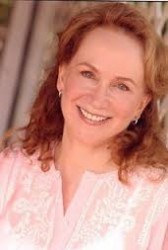
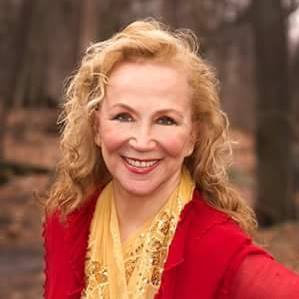
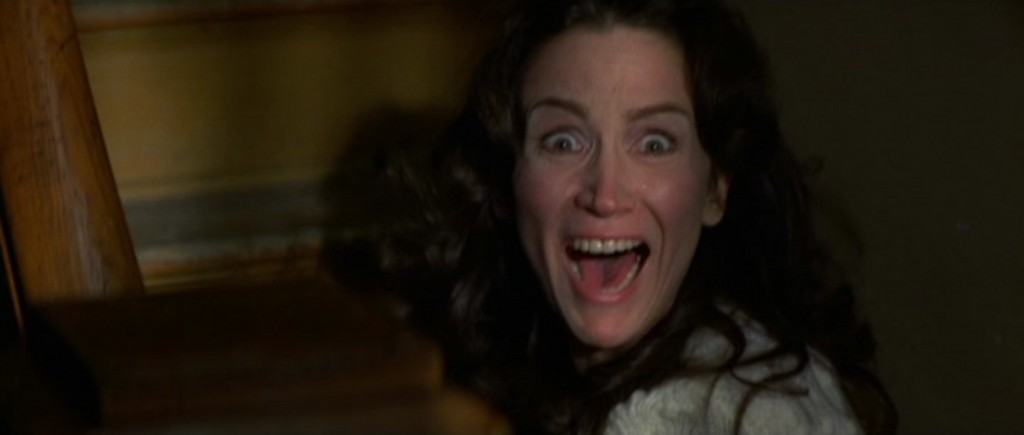
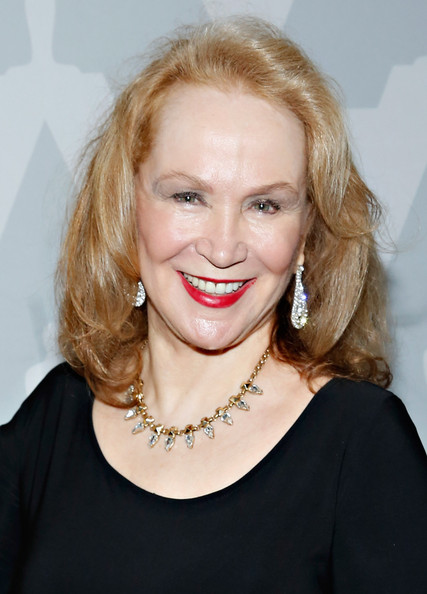
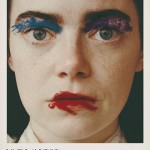
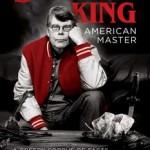
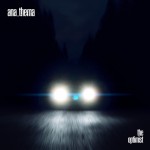
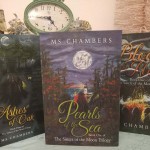 THE SISTERS OF THE MOON Trilogy – Samantha Chambers
THE SISTERS OF THE MOON Trilogy – Samantha Chambers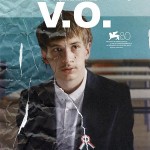 (Italiano) UNA SPIEGAZIONE PER TUTTO – Gábor Reisz
(Italiano) UNA SPIEGAZIONE PER TUTTO – Gábor Reisz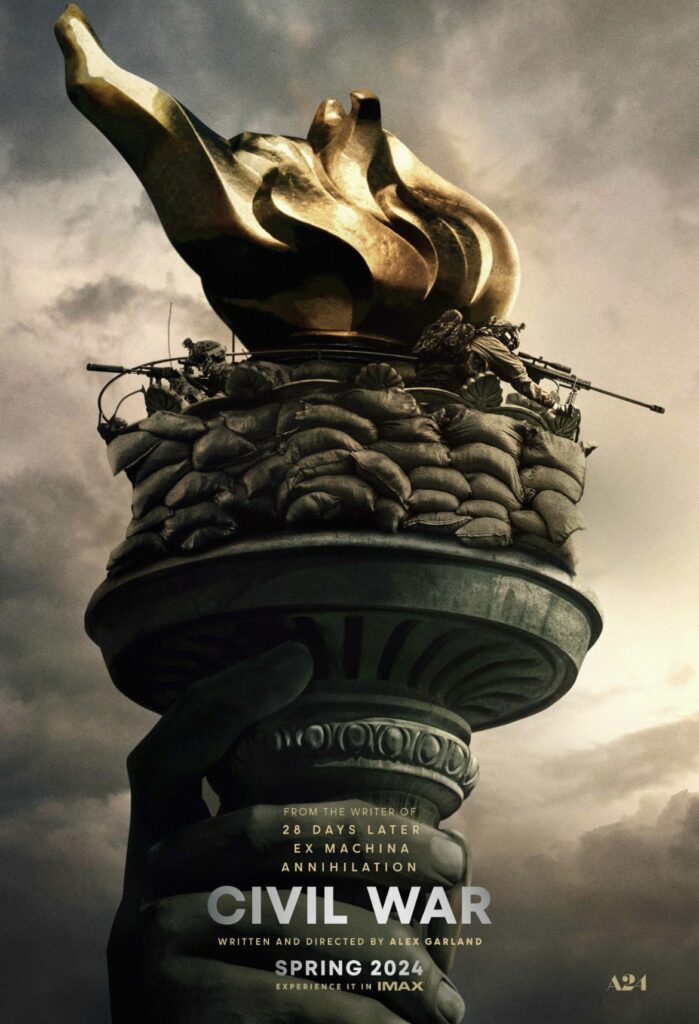 (Italiano) CIVIL WAR – Alex Garland
(Italiano) CIVIL WAR – Alex Garland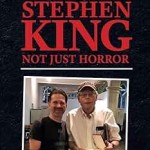 STEPHEN KING NOT JUST HORROR – Hans-Ake Lilja
STEPHEN KING NOT JUST HORROR – Hans-Ake Lilja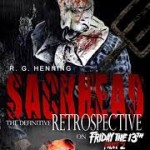 SACKHEAD:The Definitive Retrospective on FRIDAY THE 13th PART 2 – Ron Henning
SACKHEAD:The Definitive Retrospective on FRIDAY THE 13th PART 2 – Ron Henning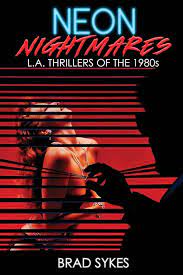 NEON NIGHTMARES: L.A. Thrillers Of The 1980′s – Brad Sykes
NEON NIGHTMARES: L.A. Thrillers Of The 1980′s – Brad Sykes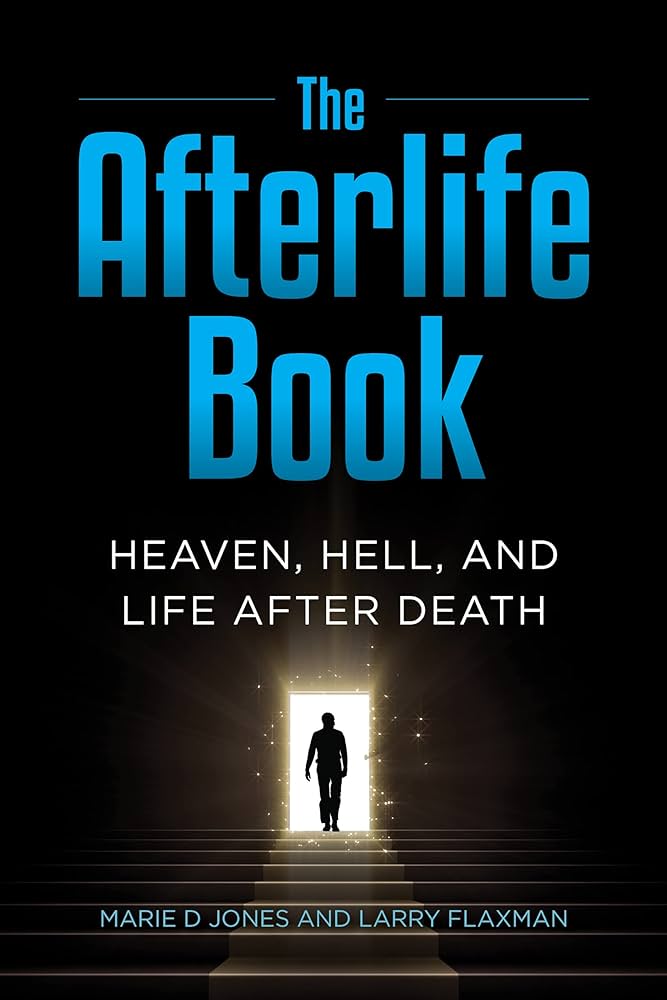 THE AFTERLIFE BOOK: Heaven, Hell, And Life After Death – Marie D. Jones & Larry Flaxman
THE AFTERLIFE BOOK: Heaven, Hell, And Life After Death – Marie D. Jones & Larry Flaxman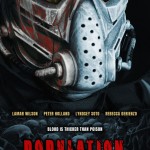 POPULATION PURGE – Brian Johnson
POPULATION PURGE – Brian Johnson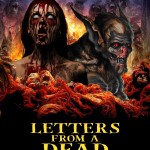 LETTERS FROM A DEAD WORLD – David Tocher (review & interview)
LETTERS FROM A DEAD WORLD – David Tocher (review & interview)